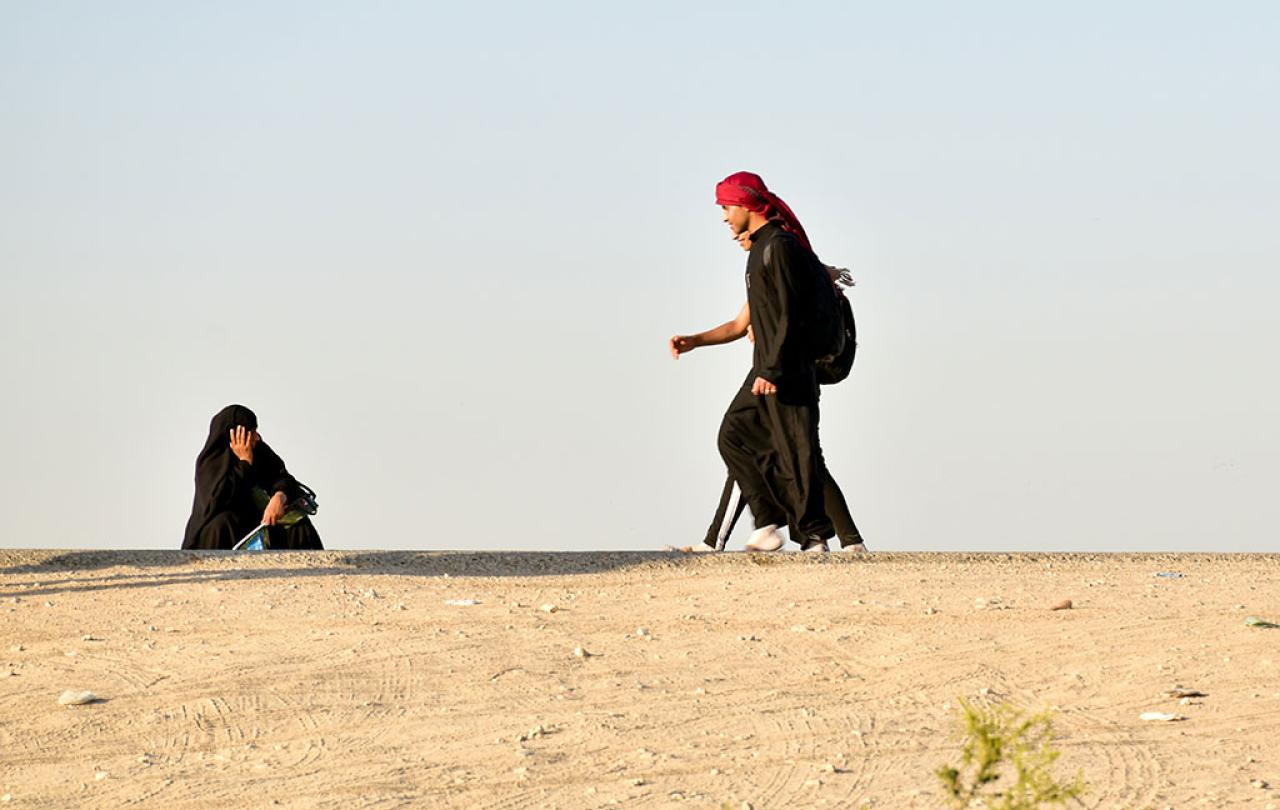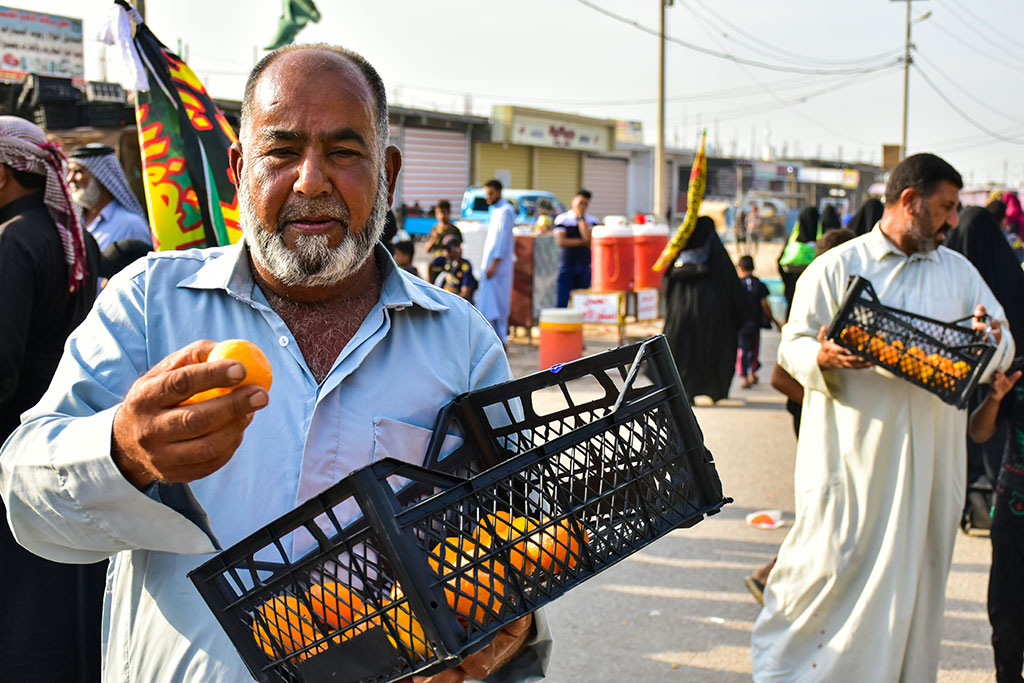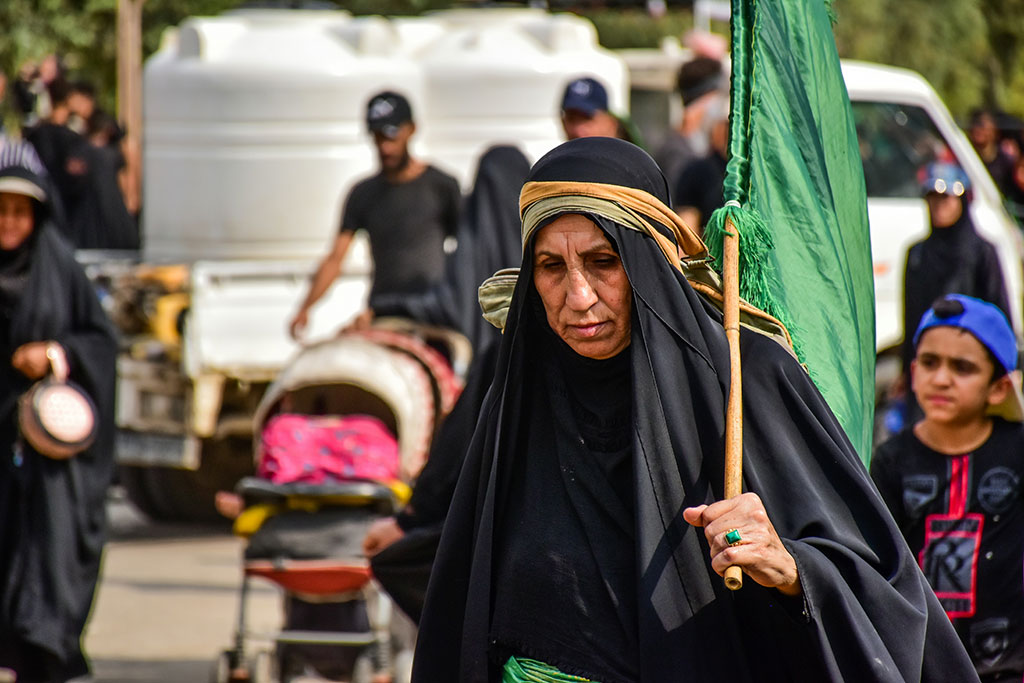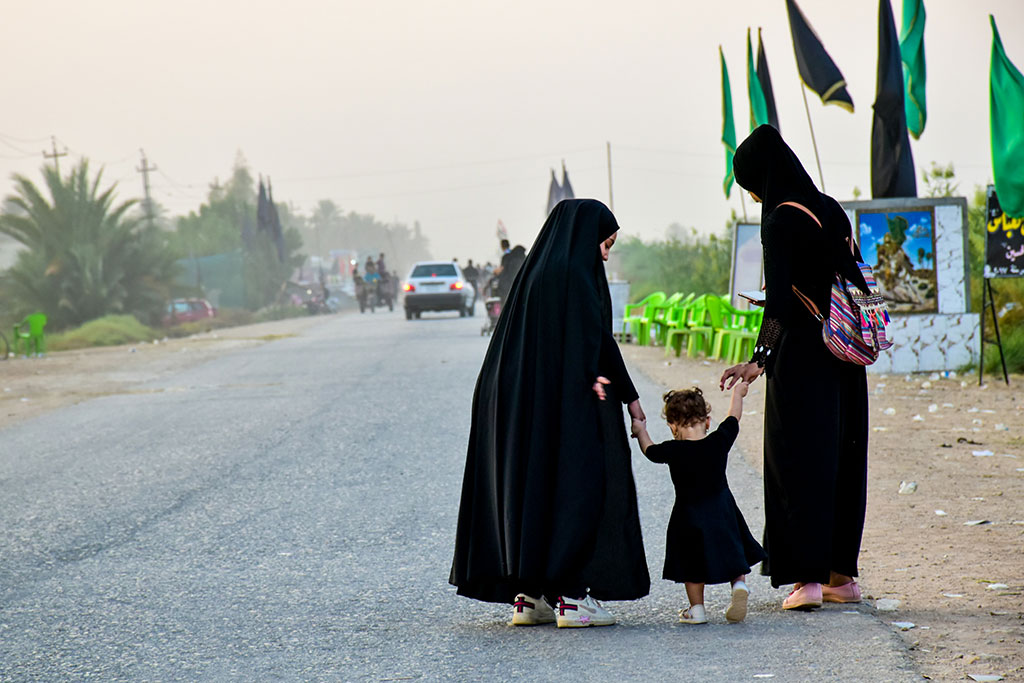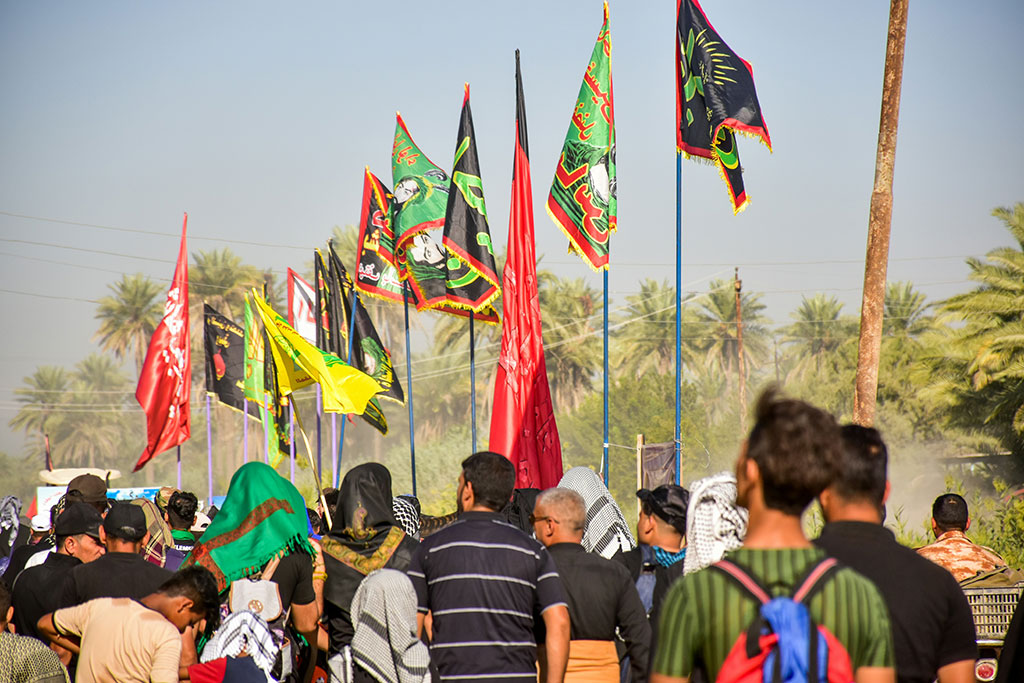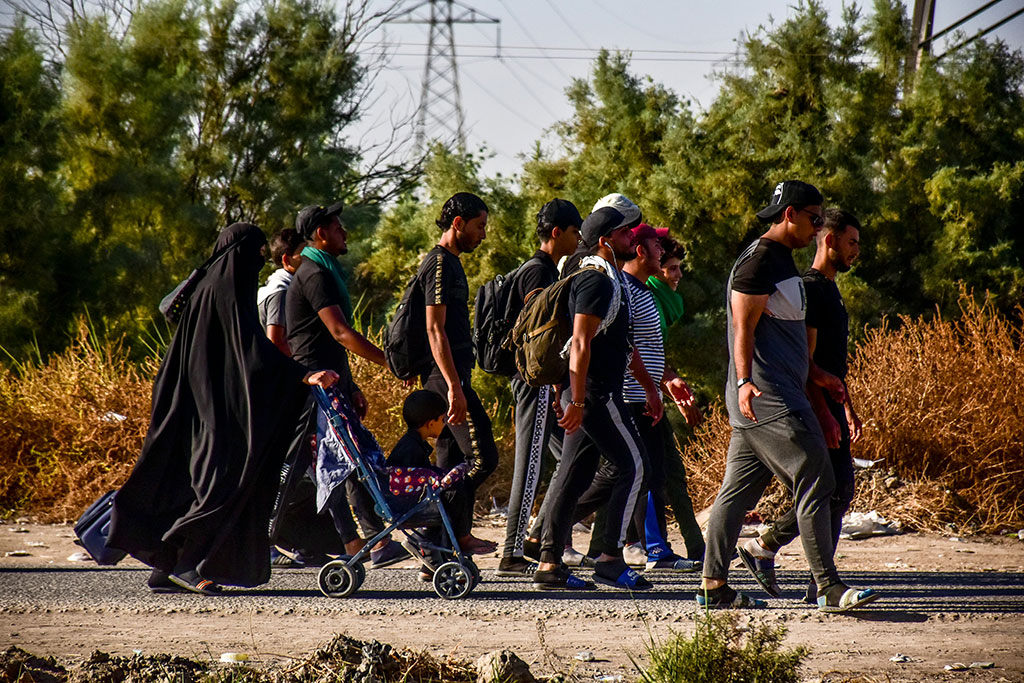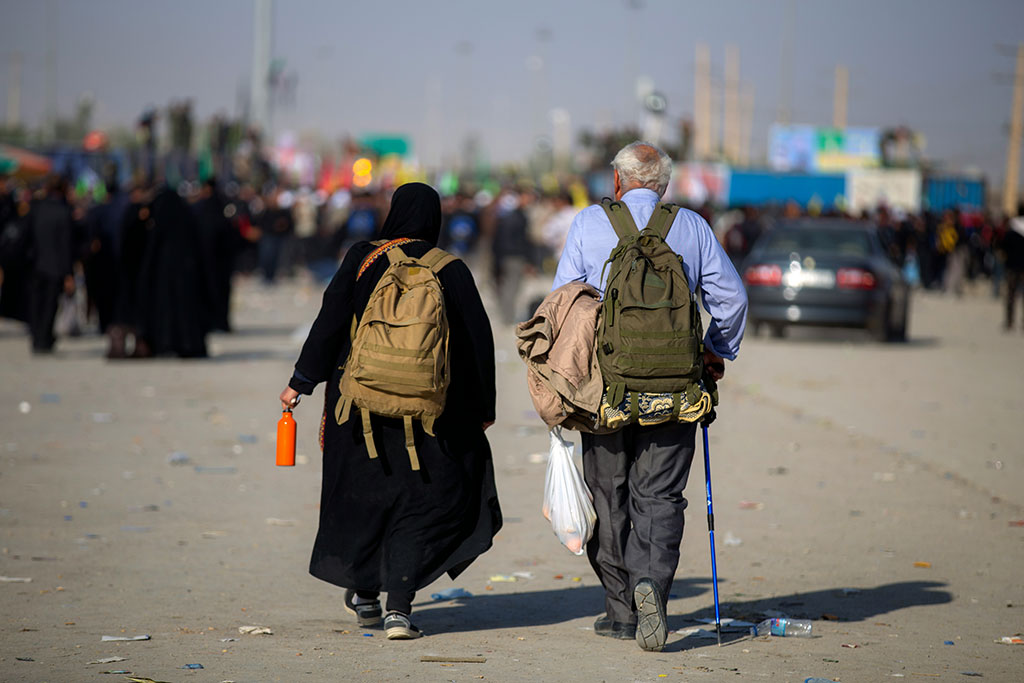
‘Blessed are those who are persecuted because of righteousness,
for theirs is the kingdom of heaven.Blessed are you when people insult you, persecute you and falsely say all kinds of evil against you because of me…’
Those are Jesus’ words. You may well recognise them, they’re among his most famous. Probably because they’re so darn bewildering, fairly uncomfortable too. At least, they are to me.
You see, I’ve only ever read these words. I’ve never actually lived them.
I read them on Wednesday morning, in fact. And there was nothing inspired, intentional or special about that. Nearly all of my days begin the exact same way - tucked up in bed with a cup of tea and an allocated chunk of Bible to read through – and, on Wednesday, it just so happened to be this chunk. It was a fairly mundane affair, business as usual. Except, on this particular Wednesday, which incidentally started with these particular words, I met someone for whom these words have been lived, not merely read.
Someone for whom these words hold memories and scars, for whom they are as precious in their truth as they are painful.
Someone who does not have the privilege of regarding these words as bewildering or uncomfortable, as I do.
On Wednesday, I met Dabrina.
I was fending off deadlines and 9am lectures. Dabrina was fending off sexual threats from the guards and physical assault at the hands of the interrogators.
Dabrina is from Iran, the ninth most dangerous country to be a Christian in the world. And on a bitterly cold January evening, she stood behind a podium in the Houses of Parliament, a place which has Bible verses etched into its very walls, and told us of her country, a place where belief in those very same verses is a punishable offense. With Christianity regarded as a conspiracy to undermine the Iranian government and Islamic law, much of the Christian way of life is illegal.
Gathering in large groups, illegal. House churches, illegal. Evangelism (or, more accurately, anything that is perceived to be evangelism), illegal. Teaching children, illegal. Translating the Bible into their own languages, illegal.
And not only that, but Christians are considered inherently ‘unclean’, second-class citizens in almost every way. A Christian in Iran could never be a doctor, a teacher, or a lawyer. They are also not allowed to touch food, meaning that they cannot work in retail or hospitality either. There are restrictions on what schools and universities they can attend, where they can go, and who they can socialise with. In short, they are persecuted. Christians in Iran are in danger, constantly.
I learnt all of this from Dabrina’s speech that day; a speech that left me wondering how on earth we can have so much, and yet so little, in common.
You see, both Dabrina and I believe that Jesus existed, and more than that, that he was and still is everything that he claimed to be - Son of God, light of the world, saviour to all – the whole thing. And we both try to live our lives accordingly. We have the same answers to the same questions, the same worldviews, the same God.
But the parallels get more specific than that.
Both of our parents led our local churches throughout our childhoods. But there’s a key difference; Dabrina grew up used to her father frequently disappearing with no explanation. Again and again, he would vanish, and she would be forced to anxiously await his return. I have never had to lay awake wondering if my dad was dead or alive.
I spent my teenage years working in a local coffee shop, relishing the first hints of what an independent life might feel like. Dabrina tried to get a job as a waitress too, but it was illegal for her to touch food, so she was turned away.
I spent my early twenties doing a theology degree and soaking up every moment of what I was told would be the most care-free years of my life. Dabrina spent her early twenties in an all-male prison.
I had friends who would (good-naturedly) roll their eyes at my Christian faith, wondering why I would willingly choose to wake up so early on a Sunday morning. Dabrina had friends who were spying on her and reporting the details of her life to the government.
I was fending off deadlines and 9am lectures. Dabrina was fending off sexual threats from the guards and physical assault at the hands of the interrogators.
I remember buying my first car, Dabrina remembers hers being tampered with by the authorities – on three occasions.
I live in the country I was born in. Dabrina has had to flee hers.
So, you see – While I read Jesus’ words about persecution, Dabrina lives them. Dabrina, and 365 million others around the world.
Talking to Dabrina was humbling, and astounding, and challenging - and a million other things too. The details of the trauma that she has gone through will undoubtedly continue to humble me for a long time yet, and I’m glad about that. But her answer to my final, and arguably ever-so-western, question left me utterly stunned. I asked why, after everything that she has been through and with every danger that it poses, is she still defiantly living a Jesus-shaped life. And her answer,
‘When you encounter God, when you encounter Jesus, when you are healed, when you witness signs and wonders, when you encounter the love of God as your father, as your saviour, as your provider – how can you walk away from that?
… When you’re in that much danger, you will cry out to God and he will meet you there.’
Here was a woman, for whom belief in Jesus has her caused physical harm, calling him a healer. A woman, whose faith in God has taken away her home and everything that she had built within it, calling him provider. A woman, whose Christian conviction has landed her in endless danger, calling God a saviour. A woman who told me that the Jesus I have got to know in comfort, she has seen show up in peril. A woman who told me stories of the underground church, which just so happens to be the fasting growing church in the world.
And in that moment, I thought about how much, and yet how little, I had in common with this incredible person before me.
And I thought about how mystifying it is that these 365 million people are hidden in plain sight, suffering under a blanket of silence, and how that surely cannot go on? And I pondered how so many people are being denied their freedom of belief, a basic human right, and yet we barely speak about it? And I felt indignant in a way that must infuriate those who have spent more than an evening engaging with this issue.
And then I thought back to that bewildering sentence from Jesus – where he puts the words persecution and blessed together - and realised that it is a sentence that I shall likely spend my life pondering, while Dabrina knows it to be totally and concretely true.
Explore Open Doors World Watch List.





